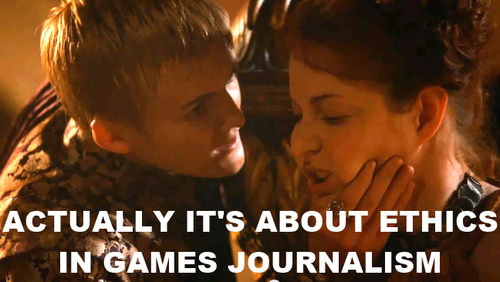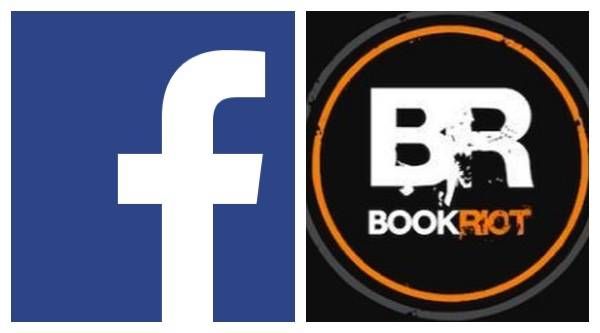
Tropes and Why We Love Them (And Love To See Them Smashed)
Tropes are the best, and also the absolute worst.
A trope is, like, ‘a thing,’ as in, ‘Oh, is that a thing now?’ A dowdy girl who takes her glasses off and hair down, and becomes prom queen, that’s a thing. The butler doing it is a thing. A character who’s trope-aware and refuses to split up the group or go outside or be black because that’s how you die, that’s a (super meta) thing.
It is, though.
We have a series at the Riot called Genre Kryptonite which is often just a list of our favorite Things. I, for example, love when someone has a mad relative stashed away somewhere. Preferably a wife in an attic, but I will take cousins in an asylum or children under stairs (not Harry Potter, the other, way more sinister children under the stairs). Basically if people are making veiled and shady references to a character who is never seen (but occasionally heard laughing and maybe sometimes setting beds on fire in the dark of night), I am IN.
Tropes can be so great. They are inside jokes the world has with itself. HOWEVER. They can become clichés when overused or used boringly. If I never see another uptight dude be taught how to live and go barefoot in the grass by an adorable girl with bangs and a ukelele, it will be TOO SOON. A trope played exactly to expectations, without irony, isn’t likely to thrill anyone except preschoolers, for whom it is an unutterable delight. Three-year-olds love when the princess marries the prince. It hasn’t gotten old for them, and they’re super stoked that they sort of saw it coming because it makes them feel clever. Older and more jaded folk like myself, provided we haven’t reached our utter limit, can still enjoy a meet-cute -> misunderstanding -> grand romantic gesture -> now kiss. We can still love a beneficent benefactor (the child’s dead father’s former best friend, a TV game show, or similar) swooping in at the end to lift the noble but suffering child from poverty. We can still take comfort in the predictability.
But we LOVE a subverted trope its freshness and inventiveness, for the way it catches us off guard. We like to be a little bit tricked. The reason a children’s book like The Paperbag Princess is so popular with adults is that it upends tropes all over the place. The regular cast of characters – Prince, Princess, Dragon, Castle – is shuffled, and you’re all like, Oh good, the Princess is going to rescue the Prince, how avant-garde. But the Happily Ever After itself is also subverted, as the attractive, royal Robert (unlike all the other attractive royals in fairytaledom ever) turns out to be an unmarriageble bum, and the Princess skips off with her own bad self into the sunset.
Another, more compelling reason we love to see tropes subverted is because many of them are hugely problematic. The bitchy, damaged feminist who just needs a man to love her. The devious ‘foreigner’ (foreign from where though. ‘Foreign’ isn’t an absolute descriptor; it requires a locus. You can’t just say ‘foreigner’ when you mean ‘vaguely not white.’). Even my much-beloved mad relatives, often merciless, one-dimensional representations of people with mental illness. These tropes are worse than tired and old – they are so ingrained that it becomes difficult to recognize their toxicity. They reinforce our unconscious stereotypes and do nothing to challenge our frankly kind of shitty status quo. And we hold them weirdly dear. I recognize the callousness inherent in the Mad Relatives trope, but I would have trouble letting you pry it from my cold, dead hands. Culture critic Anita Sarkeesian’s video series Tropes vs Women in Video Games, an attempt to unpack insidious misogynistic stereotypes, resulted in her being harassed, doxxed, and threatened as part of the Gamergate debacle.
 Shut up, Joffrey, you spoiled-boy-king-trope.
Shut up, Joffrey, you spoiled-boy-king-trope.
We are creatures of habit and repetition, so we will never outgrow the trope qua trope. Nor should we want to. Novelty is predicated on predictability. We love burgers because we know essentially what to expect, but then hey! The bun is now two grilled cheese sandwiches, and we love that, too. Without a platonic ideal of BURGER, however the grilled-cheese-burger-thing would just be a pile of random foodstuffs. So let the trope live on, but let it be pulled apart, examined, and occasionally stood on its head. Let the manic pixie dream girl learn to put on some shoes and hold down a fucking job, and let her do it as the defining force in her own life for once, not as the Tinkerbell to our hero’s Peter Pan.
What are your favorite tropes? Which do you find the most disturbing?
____________________
Want more bookish goodness, news, posts about special book deals, and the occasional puppy reading pic? Follow us on Facebook:









